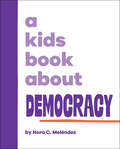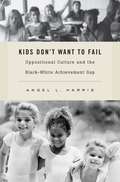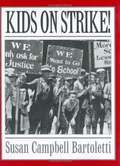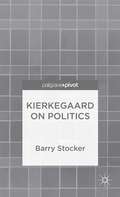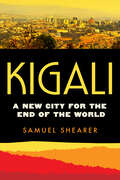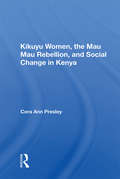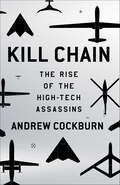- Table View
- List View
Kidnapped on Safari (The Mbuno & Pero Thrillers)
by Peter RivaA filmmaker&’s search for a kidnapped safari guide pulls him into a massive terrorist plot in this action-packed, international thriller. Film producer Pero Baltazar&’s last job has him filming on Kenya&’s Lake Rudolf for a television nature show with the help of his friend, Mbuno, an expert tracker and safari guide. But their idyllic escape is soon spoiled by terrifying news: Mbuno&’s nephew has been kidnapped while leading a safari five hundred miles away in Tanzania. As they begin their search, they find a trail of clues that leads to a shocking discovery. The kidnappers have ties to an illegal logging operation run by sinister mercenaries from Boko Haram. They pose an even bigger threat than just human trafficking and deforestation. Rescuing Mbuno&’s nephew will not only risk their lives but also the political stability of the entire region . . . Perfect for readers of John le Carré, Daniel Silva, and Iris Johansen.A New Mexico-Arizona Book Awards Winner&“An amazing piece of writing . . . incredible page turner.&” —Mona Houghton, author of Frottage & Even as We Speak&“This is travelling into the Heart of Darkness 120 years later, and the horror—oh the horror!—is still there.&” —Åke Edwardson, bestselling and award–winning author of the Erik Winter series&“A solid . . . yarn of intrigue and derring-do. . . . Complex, believable action, including a breakneck ride through the jungle on a hijacked train.&” —Publishers Weekly
Kids Are Americans Too
by Bill O'Reilly Charles FlowersFour-time #1 bestselling author and veteran television news journalist Bill O'Reilly has more than 5 million copies of his books in print to date! His first book for young fans, The O'Reilly Factor for Kids, held the honorable distinction of being the #1 bestselling nonfiction title for kids in 2005 according to Nielsen's The Book Standard.Back again with a dialogue on rights that will have everyone talking, O'Reilly and his coauthor Charles Flowers dole out the kind of blunt, cogent, commonsense commentary you count on them for. Together they explore timely questions being debated in and out of courts today, including: Can a kid wear an anti-gay T-shirt on campus?Does a school newspaper have the right to bad-mouth a principal?Does a mother have the right to eavesdrop on her daughter's telephone conversations?Some of the answers will surprise you. Some will empower you. All will make you think.
Kids Are Citizens
by Ellen KellerKids want to help others and to be responsible citizens. See how they persuade others to work with them to make their communities better
Kids Book About Banking, A (A Kids Book)
by Mehrsa BaradaranLearn all about banks and the magic of money.When you think of a bank, what comes to mind? A building? A safe, filled with gold? What if we told you banks weren't any of these things? And (get ready for this)...most money isn't even kept in the bank! Banking is a system that allows money to move from one place to another, creating opportunities and growth. And banks only work with a shared belief in the magic of money.
Kids Book About Democracy, A (A Kids Book)
by Nora MelendezA thriving democracy requires practice, teamwork, and a commitment to respecting one another.Democracy is a form of government which relies on active participation from its citizens. Sharing information with kids when they are young is an excellent start to understanding, communication, and using our voices to help others. Start learning about democracy at home, at school, at work, and for our country today!
Kids Book About Incarceration, A (A Kids Book)
by Ethan ThrowerIncarceration is a BIG topic. Start the conversation early around the power of choices, consequences, justice, and growth.Incarceration is a big word for a HUGE topic. It can bring up difficult questions and feelings—especially when it affects you directly. This book explores incarceration, crimes, and prison, as well as the power of choices. The author's story highlights the impact of choices and how someone can grow, learn, and change the path they've been on.
Kids Book About School Shootings, A (A Kids Book)
by Crystal Woodman MillerThis book will help kids better understand what school shootings are and the emotions that come with the what if.School shootings have become an increasingly common and tragic reality. And while they're not as common as they feel, they are still very real, and so is the fear, anxiety, and trauma that comes with the awareness of them. This book will help grownups and kids start important conversations about school shootings and encourage everyone to be prepared for emergencies while reminding us that we should never let fear take over our lives.
Kids Don't Want to Fail: Oppositional Culture and the Black-White Achievement Gap
by Angel L. HarrisUnderstanding the causes of the racial achievement gap in American education—and then addressing it with effective programs—is one of the most urgent problems communities and educators face. For many years, the most popular explanation for the achievement gap has been the “oppositional culture theory”: the idea that black students underperform in secondary schools because of a group culture that devalues learning and sees academic effort as “acting white.” Despite lack of evidence for this belief, classroom teachers accept it, with predictable self-fulfilling results. In a careful quantitative assessment of the oppositional culture hypothesis, Angel L. Harris tested its empirical implications systematically and broadened his analysis to include data from British schools. From every conceivable angle of examination, the oppositional culture theory fell flat. Despite achieving less in school, black students value schooling more than their white counterparts do. Black kids perform badly in high school not because they don’t want to succeed but because they enter without the necessary skills. Harris finds that the achievement gap starts to open up in preadolescence—when cumulating socioeconomic and health disadvantages inhibit skills development and when students start to feel the impact of lowered teacher expectations. Kids Don’t Want to Fail is must reading for teachers, academics, policy makers, and anyone interested in understanding the intersection of race and education.
Kids Who Rule: The Remarkable Lives of Five Child Monarchs
by Charis CotterThey were queens. They were kings. They were kids. Lots of kids dream of becoming royalty. But being a child monarch is not all glory and bossing people around. Behold Kids Who Rule and discover the startling realities of five junior rulers from history. Boy king Tutankhamun was crowned pharaoh of Egypt at age nine. Groomed to lead armies, his homework involved firing arrows from a moving chariot. Mary Queen of Scots became royalty at only six days old. She grew up fleeing bad-tempered King Henry VIII who saw her as a child bride for his son. Other child monarchs profiled: Queen Christina of Sweden (1626 to 1689); Puyi, Last Emperor of China (1906 to 1967); The current Dalai Lama of Tibet (1935 to present). Each chapter focuses on a different ruler by offering a dramatic episode from their regal childhood, eye-opening elements of their country's history, and an "End of the Story" section on how their life played out. Complete with intriguing sidebars, Kids Who Rule is a crowning achievement of non-fiction storytelling.
Kids on Earth: The Learning Potential of 5 Billion Minds
by Howard Blumenthal Robert C. PiantaIn this visionary effort, students take the lead in reimagining public education for the twenty-first century, advocating for a more active, personalized, and relational approach to learningTwenty-first century youth are hungry for new ways to learn. Their world is global, mobile, and rich with opportunities previous generations couldn’t possibly have imagined. As they make clear in this book, the old standards of schooling no longer apply. In Kids on Earth, Howard Blumenthal and Robert C. Pianta go straight to the source—students themselves—to rethink public education for the five billion young minds projected to be learning by 2050. Blumenthal and Pianta interview children and teenagers from more than seventy countries, along with parents, teachers, and learning experts, to build, from their perspectives, a scalable global framework for radical educational change. “New School,” in contrast to old school, is a foundational concept with three guiding pillars: learning is active, learning is personal, and learning is relational. Its teachings emphasize cognitive science, memory, and relationships—aligning learning with contemporary lived experience. New School also appreciates “Not School,” external instruction that involves media, technology, and other forms of learning. Integrating these spheres, Blumenthal and Pianta argue, would better reflect our hyperconnected, innovative world, motivating students to succeed within it.Kids on Earth calls not for reform but reinvention, an ambitious, all-hands-on-deck effort to remake school for current and future generations, preparing them best for global citizenship. Unlike many books on education, this volume gives kids the chance to make it alright.
Kids on Strike!
by Susan Campbell BartolettiDescribes the conditions and treatment that drove working children to strike, from the mill workers' strike in 1834 and the coal strikes at the turn of the century to the children who marched with Mother Jones in 1903.
Kids' Letters to President Bush
by Bill AdlerA humorous, eye-opening look at the American political life as viewed through the children’s correspondence with the president. In this collection of more than three hundred letters to President Bush, kids ask personal questions, offer advice, and tell the president about themselves. Ranging from funny to poignant these letters provide a unique glimpse into the minds of young Americans and offer a fresh view of the White House.
Kids' Letters to President Obama
by Bill Adler Jr.A charming non-partisan collection of more than 200 letters highlighting children's thoughts and perspectives on the historic victory of President Barack Obama and what lies ahead.
Kierkegaard On Politics
by Barry StockerThis investigation of Kierkegaard as a political thinker with regard to the Danish context, and to his place in the history of political thought, deals with the more direct discussion of politics in Kierkegaard, and the ways in which political ideas are embedded in his literary, aesthetic, ethical, philosophical, and religious thought.
Kigali: A New City for the End of the World (Atelier: Ethnographic Inquiry in the Twenty-First Century)
by Samuel ShearerA free ebook version of this title is available through Luminos, University of California Press's Open Access publishing program. Visit www.luminosoa.org to learn more. In the first decade of the twenty-first century, the government of Rwanda hired American and Singaporean design firms to transform the image of Kigali from a wounded city into a competitive destination for foreign investment. The firms produced promotional images of a post-conflict tabula rasa waiting to be rebuilt by foreign investors as an urban solution to climate change. However, to make this marketing image real, much of the actual city would need to be destroyed and its residents converted to consumers of green housing and service delivery systems. Kigali is an ethnography of a city that is being destroyed so that it can be rebuilt for the end of the world. Drawing on years of ethnographic fieldwork with Kigali residents as they navigate the catastrophes induced by sustainable urbanism, this book offers a searing critique of capitalist solutions to climate change and an account of the city’s popular alternatives to sustainable urbanism.
Kikuyu Women, The Mau Mau Rebellion, And Social Change In Kenya
by Cora Ann PresleyBased on rare oral data from women participants in the "Mau Mau" rebellion, this book chronicles changes in women's domestic reproduction, legal status, and gender roles that took place under colonial rule. The book links labour activism, cultural nationalism, and the more overtly political issues of land alienation, judicial control, and character
Kill Bin Laden: A Delta Force Commander's Account of the Hunt for the World's Most Wanted Man
by Dalton FuryThis synopsis is taken from the front side cover of the book: "The mission was to kill the most wanted man in the world - an operation of such magnitude that it couldn't be handled by just any military or intelligence force. The best America had to offer was needed. As such, the task was handed to roughly forty members of America's super secret counterterrorist forces Operational Detachment Delta; more popularly, the elite and mysterious unit Delta Force. The American generals were flexible. A swath of hair, a drop of blood, or simply a severed finger wrapped in plastic would be sufficient. Delta's orders were to go into harm's way and prove to the world bin Laden had been terminated. These Delta warriors had help; a dozen of the British Queen's elite commandos, another dozen or so Army Green Berets, and six intelligence operators from the CIA laid the groundwork by providing cash, guns, bullets, intelligence, and interrogation skills to this clandestine military force. Together, this team waged a modern siege of epic proportions against bin Laden and his seemingly impenetrable cave sanctuary burrowed deep in the Spin Ghar mountain range in eastern Afghanistan. Over the years, since the battle ended, scores of news stories have surfaced offering tidbits about what actually happened in Tora Bora. Most of it is conjecture and speculation. This is the real story of the operation, the first eyewitness account of the Battle of Tora Bora, and the first book to detail just how close Delta force came to capturing bin Laden, how close U.S. bombers and fighter aircraft came to killing him, and exactly why he slipped through our fingers. Lastly, this is an extremely rare inside look at the shadowy world of Delta Force and a detailed account of those warriors in battle."
Kill Caesar!: Assassination in the Early Roman Empire
by Rose Mary Sheldon&“Why were Rome&’s first emperors—the good, the bad, and the ugly—so vulnerable to conspiracies and assassination? . . . an expert analysis . . . compelling.&” —Adrienne Mayor, author of The Poison King: The Life and Legend of Mithradates and Rome&’s Deadliest Enemy Exploring the history of internal security under the first Roman dynasty, this groundbreaking book answers the enduring question: If there were 9,000 men guarding the emperor, how were three-quarters of Rome&’s leaders assassinated? Rose Mary Sheldon traces the evolution of internal security mechanisms under the Julio-Claudians, evaluating the system that Augustus first developed to protect the imperial family and the stability of his dynasty. Yet in spite of the intensive precautions taken, there were multiple attempts on his life. Like all emperors, Augustus had a number of competing constituencies—the senate, the army, his extended family, the provincials, and the populace of Rome—but were they all equally threatening? Indeed, the biggest threat would come from those closest to the emperor—his family and the aristocracy. Even Roman imperial women were deeply involved in instigating regime change. By the fourth emperor, Caligula, the Praetorian Guards were already participating in assassinations, and the army too was becoming more politicized. Sheldon weighs the accuracy of ancient sources: Does the image of the emperor presented to us represent reality or what the people who killed him wanted us to think? Were Caligula and Nero really crazy, or did senatorial historians portray them that way to justify their murder? Was Claudius really the fool found drooling behind a curtain and made emperor, or was he in on the plot from the beginning? These and other fascinating questions are answered as Sheldon concludes that the repeated problem of &“killing Caesar&” reflected the empire&’s larger dynamics and turmoil.
Kill Chain: The Rise of the High-Tech Assassins
by Andrew CockburnAn essential and page-turning narrative on the history of drone warfare from journalist Andrew Cockburn, exploring how this practice emerged, who made it happen, and the real consequences of targeted killing.Assassination by drone is a subject of deep and enduring fascination. Yet few understand how and why this has become our principal way of waging war. Kill Chain uncovers the real and extraordinary story; its origins in long-buried secret programs, the breakthroughs that made UAV operations possible, the ways in which the technology works and, despite official claims, does not work. Taking the reader inside the well-guarded world of national security, the book reveals the powerful interests - military, CIA and corporate - that have led the drive to kill individuals by remote control. Most importantly of all, the book describes what has really happened when the theories underpinning the strategy -- and the multi-billion dollar contracts they spawn -- have been put to the test. Drawing on sources deep in the military and intelligence establishments, Andrew Cockburn's Kill Chain unveils the true effects, as demonstrated by bloody experience, of assassination warfare, a revelation that readers will find surprising as well as shocking.
Kill It & Grill It: A Guide to Preparing and Cooking Wild Game and Fish
by Ted Nugent Shemane NugentTed Nugent shares his favorite recipes for such exotic fare as wild boar, pheasant, buffalo, and venison. The cookbook is filled with hunting anecdotes, detailed instructions on cleaning and dressing game, helpful hints, and nutritional information.
Kill It to Save It: An Autopsy of Capitalism’s Triumph over Democracy
by Corey DolgonHow have powerful Americans convinced their fellow citizens to support policies beneficial only to the wealthy? Why have so many given up on public education, safe food and safe streets, living wages – even on democracy itself? Kill it to Save it lays bare the hypocrisy of US political discourse by documenting the story of capitalism’s triumph over democracy. As the Progressive Left tries to understand how President Trump came to power, Corey Dolgon documents his historical, political and cultural road map. Dolgon argues that American citizens now accept policies that destroy the public sector and promote political stories that feel right “in the gut”, regardless of science or facts. Covering the post-Vietnam era to present day, Dolgon dismantles US common sense cultural discourse and explains why the endless crisis in US policy will continue until American citizens recognize what has been lost, and in whose interest.
Kill Khalid: The Failed Mossad Assassination of Khalid Mishal and the Rise of Hamas
by Paul McGeough&“Meticulously researched . . . This is the definitive chronicle of the Middle East crisis during the Clinton years and in the post-9/11 era&” (Publishers Weekly). &“Providing a fly-on-the-wall vantage of the rising diplomatic panic that sent shudders through world capitals,&” Kill Khalid unfolds as a masterpiece of investigative journalism (Toronto Star). In 1997, the Israeli intelligence agency Mossad poisoned Hamas leader Khalid Mishal in broad daylight on the streets of Amman, Jordan. As the little-known Palestinian leader slipped into a coma, the Mossad agents&’ escape was bungled and the episode quickly spiraled into a diplomatic crisis. A series of high-stakes negotiations followed, which ultimately saved Mishal and set the stage for his phenomenal political ascendancy. In Kill Khalid, acclaimed reporter Paul McGeough reconstructs the history of Hamas through exclusive interviews with key players across the Middle East and in Washington, including unprecedented access to Mishal himself, who remains to this day one of the most powerful and enigmatic figures in the region. A &“sobering reminder of how little has been achieved during 60 years of Israeli efforts in Palestine,&” Kill Khalid tracks Hamas&’s political fortunes across a decade of suicide bombings, political infighting, and increasing public support, culminating in the battle for Gaza in 2007 and the current-day political stalemate (Kirkus Reviews, starred review). &“A pacey, riveting, and controversial book that has all the compulsion of a Le Carré novel.&” —John F. Burns, The New York Times &“[A] gem of leave-no-stone-unturned reporting.&” —Foreign Affairs
Kill Shot: An American Assassin Thriller (A Mitch Rapp Novel #2)
by Vince Flynn#1 New York Times bestselling author of American Assassin—now a major motion picture—and &“the voice of today&’s postmodern thriller generation&” (The Providence Journal) delivers a pulse-pounding novel starring a young, hungry, and lethal operative named Mitch Rapp as he begins his career as a CIA superagent.In the year since the CIA fully trained and then unleashed him, Mitch Rapp has been steadily working his way through a list of men, bullet by bullet. His latest target takes him to Paris but in the split second it takes the bullet to leave Rapp&’s silenced pistol, everything changes. The tables have turned, and Rapp finds himself brutally outnumbered. In the same instant, he has become a liability. Operating on his own and outside the control of his handlers, it soon becomes clear that nothing is more dangerous than a wounded and cornered man. Because if anyone can survive and come out on top, no matter whom he must kill to get there, it&’s Mitch Rapp. The stakes are higher than they&’ve ever been as Mitch Rapp embarks on the journey that will turn him into America&’s most deadly asset. The non-stop and realistic action proves that &“Flynn is a master—maybe the master—of writing thriller novels in which the pages seem to turn themselves&” (Bookreporter).
Kill Switch
by James PhelanA roller-coaster terrorist thriller from Australia's answer to a post-Osama Tom Clancy.Jed Walker has 48 hours to save the world. 'Phelan writes in swift, gritty prose . . . vivid and suspenseful, drawing you right in' ? The AgeThe countdown has begun ... The world is under cyber attack. The secretive terror outfit of linked lone-wolf operatives, known as Zodiac, has activated another terrorist cell. Chaos will be unleashed at six-hour intervals, with each event more catastrophic than the last, culminating in a devastating global catastrophe within 48 hours. The options for the hackers are endless: bring down California's telecom system; remote detonate explosives at an army base in Virginia; cause Amtrak's signals to fail; collapse air traffic control in US airspace. Consequences are unthinkable. The US President has the power to enact the Internet Freedom Act - the 'Kill Switch'. Turning off the Net will stop the attacks, and give the CIA and the Pentagon time to track down those responsible. But it's not that simple. Fourteen people with the key to restart the Internet are missing. The US will plummet into pandemonium if electronic communications cease. The rest of the world will follow. Jed Walker, ex CIA-operative, has thwarted Zodiac twice before. But, this time, nothing will prepare him for what he uncovers. Walker has 48 hours, and the countdown has begun ... PRAISE FOR JAMES PHELAN'S JED WALKER NOVELS: 'Jed Walker is right there in Reacher's rear-view mirror' - Lee Child'vivid and suspenseful ... If you like espionage novels with plenty of grunt you can't go past it' - SMH'Melbournian Phelan gives British thriller writer Lee Child a run for his money' - Weekend West
Kill Switch: The Jed Walker Series Book 3 (The Jed Walker series #3)
by James Phelan'A terse, tense brand of hard-boiled action suspense . . . addictive.' THE AGEThe world is under cyber attack. A secretive terror outfit, known as Zodiac, is preparing to unleash chaos. The only thing certain is the intent to create a devastating global catastrophe.The US President has the power to enact the Internet Freedom Act - the 'Kill Switch'. Turning off the Net will stop the attacks. But it's not that simple. The US will plummet into pandemonium if electronic communications cease. The rest of the world will follow.One man, ex-CIA operative Jed Walker, has 36 hours to stop the terrorists. But for Jed, Zodiac isn't the only thing he has to worry about. To protect the future he must reconnect with a woman from his past. No matter which way he turns, he has tough choices to make. Not everyone will get out alive. For Walker, the countdown starts now . . .KILL SWITCH is an edge-of-your-seat thriller full of action and suspense.




